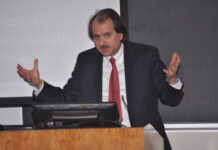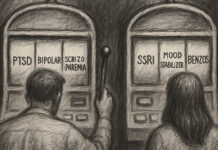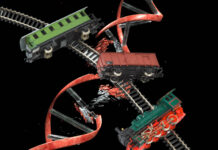No Subgroup of Patients for Whom Antidepressants Are Effective
A reanalysis of STAR*D finds no support for the theorized subgroup of patients who do well on antidepressants.
A Call for Retraction: How a Journal Condoned Psychedelic Therapy Abuse
The concealing of relevant data from a research project is a form of fraud and the grounds for retraction of the JHP study.
Like a Refuge and Like a Prison
From Mad in Puerto Rico: Laura López-Aybar interviews Francisco about psychiatric hospitalization.
Science Under Pressure, Humanity at Stake: An Interview with John Ioannidis
The Stanford professor behind the most famous paper in modern medicine warns that much of today’s research is unreliable, yet insists the project is worth defending.
When Validation Becomes Avoidance: The Hidden Costs of Comfort in Modern Therapy
Each week, her therapist offered affirmations and reassurance. Her eating disorder remained comfortable and unchallenged.
Locura en Argentina
Editor Alan Robinson aims to provide readers with a magazine that represents them and the “mad cultures” found in Argentina.
Researchers Criticize Putting Preschoolers on Stimulant Drugs
Against guideline recommendations, preschoolers were often prescribed stimulants without even having the chance to try family behavioral therapy.
Confessions of an Advertising Writer: What I Learned From Your Stories—And Mine
Apologies won’t undo the harm. What I’ve learned might. The current system will not change unless we organize.
Welcome to the Psychiatry Casino
Modern psychiatry is still, in many ways, closer to educated gambling than science. And patients deserve to know that.
Therapy in the Age of Self Management and Public Abandonment: A Conversation with Psychological...
Talia Weiner discusses how conservative politics and market logic reshape mental health care.
A Place in the Forest: Mental Well-Being from a Wider Perspective
The whole social system as it is now is not designed with the purpose of well-being. Where has this gotten us?
The 110-Year “Schizophrenia Genetic Research” Train Wreck
The “genetics of schizophrenia” area of research is currently in disaster mode and awaits its endpoint.
Public Citizen, the FDA, and SSRI Safety
The safe and effective treatment for depression is psychotherapy and social support, not prescription drugs.
Beliefs that Create Madness
We know that it is not simply a chemical imbalance or a broken brain. We know how the context plays a large role.
Antidepressants in Pregnancy—Turning a Blind Eye, Again
You might think that telling women about the potential risks of taking antidepressants during pregnancy would be uncontroversial.
Sober Living: Why Less Clinical Sometimes Means More Recovery
Real independence is where most people stumble. Treatment can’t replicate what it’s like to live sober in the chaos of everyday life.
The Psychological Totalization of Experience: Objectification and Subjectivity
I must be a mechanistic, predictable unit, in order for a psychiatric label or a psychological variable to be implemented on me smoothly.
ECT: New Studies Detail Harms, Lack of Efficacy, Lack of Informed Consent
What people who have received ECT really think about what they were told, and about how ECT affected them.
Narrative Reclamation: Who’s Allowed to Tell Their Story?
Narratives have the power to lock us up—sometimes literally. But they also have the power to set us free.
How to be a Critical Psychologist Without Losing Your Soul: A Conversation With Zenobia...
On the Mad in America podcast, Zenobia Morrill, José Giovanni Luiggi-Hernández and Justin Karter join us to explore the need to raise awareness of psychological approaches that challenge mainstream perspectives.
Reflections on My Mistrust for Other Mental Health Workers
I learned to hold my tongue around mental health workers. I dealt with their slurs by working harder and longer than them.
Confessions of an Ad Writer: How I Helped Turn Atypical Antipsychotics into a Billion-Dollar...
How we redefined schizophrenia, rewrote the safety narrative of antipsychotics, and helped drive one of the most successful (and concerning) pharmaceutical launches in history.
Two Voices and One Chair
It’s a war between two voices. The writer’s voice shapes, composes, imagines. The trauma’s voice: raw, insistent, unfiltered, breaking in.
Antipsychotics—And How I’ve Learned to Manage the Side Effects
While suppressing pathological symptoms, drugs also suppress the normal instinct of "wanting to move" and "wanting to enjoy life".
It’s the Cracked Ones Who Let the Light in
The identified patient is often the healthiest: a lighthouse desperately pointing the way to the wounds and power imbalances in the family.

































